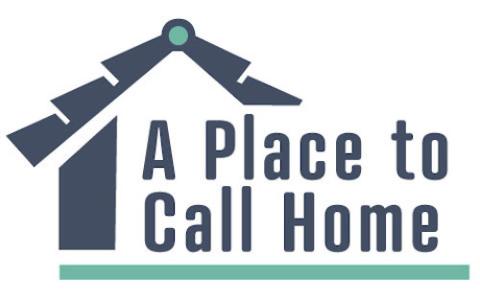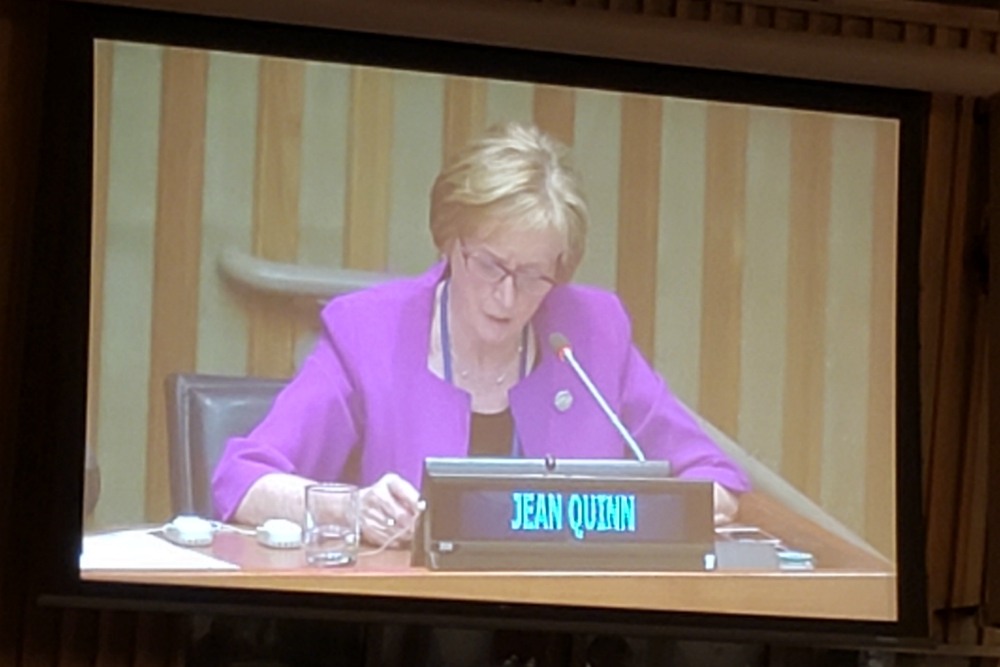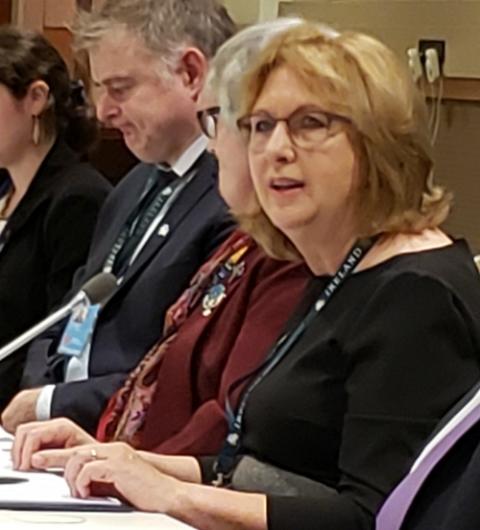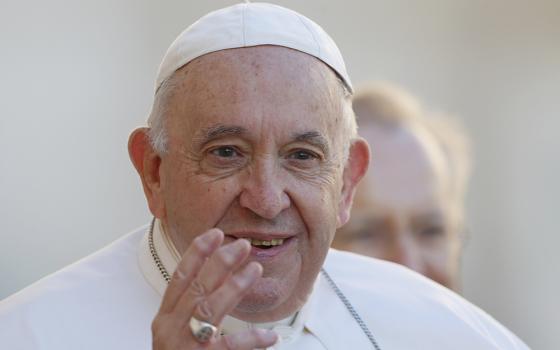
The Feb. 10 opening session of the United Nations' Commission on Social Development meeting on homelessness at the United Nations headquarters in New York City (GSR photo / Chris Herlinger)

(GSR/Toni-Ann Ortiz)
Editor's note: More than 1.6 billion people worldwide live in substandard housing. Of those, at least 150 million have no home at all. In this special series, A Place to Call Home, Global Sisters Report is focusing on women religious helping people who are homeless or lack adequate shelter. Over the next several months, we will examine how homelessness and a lack of affordable housing affect teens and young adults, families, migrants, the elderly, and those displaced by natural disasters and climate change, in stories from Kenya, India, Vietnam, Ireland, Puerto Rico, the Philippines, the United States and elsewhere.
Catholic sisters and other activists who have long championed the cause of fighting homelessness are finally being heard at the United Nations.
For the first time in its history, the United Nations is addressing the issue of homelessness and affordable housing during a set of meetings that began Feb. 10 and conclude Feb. 19. The meetings are at the center of the annual convening of the U.N.'s Commission for Social Development.
"Homelessness in all its forms, including family homelessness, has been left behind in the global debate," said Daughter of Wisdom Sr. Jean Quinn, who wasted no time addressing the urgency of the problem in an address at the Feb. 10 opening session.
"There is clear evidence that [U.N. member] states are failing to meet their obligations to provide housing with support as a basic human right, leaving homelessness as one of the most devastating cross-cutting issues we face as a global community," said Quinn, executive director of UNANIMA International, a U.N.-based coalition of Catholic congregations focused on concerns of women, children, migrants and the environment.
Internationally, Quinn noted, "there have been a number of efforts to address the issue of homelessness. With varying degrees of success, a vast number of efforts to eradicate homelessness are centered around housing."
But activists like Quinn, who founded and then headed the homelessness ministry Sophia Housing Association in her native Ireland prior to leading UNANIMA, want the United Nations to do more than hear about the issue. They want the U.N. or a world body to take action to develop a common, global definition of homelessness and to work toward an international census of sorts that determines how many people are homeless globally.
"Homelessness knows no bounds and occurs in all nations," Quinn said.
She added, "National definitions vary and hence have limitations when making comparisons between the available data and statistical measures ... It is imperative that a definition of 'homelessness' is agreed upon at the global level. Without such a definition, the issue cannot properly be measured, compared or actively addressed."
Quinn, long recognized internationally for her work on the issue, was among a group of experts who met in Nairobi, Kenya, under U.N. auspices in May 2019 to develop a preliminary working definition: Homelessness is "a condition where a person or household lacks habitable space with security of tenure, rights and ability to enjoy social relations, including safety."

Daughter of Wisdom Sr. Jean Quinn speaks Feb. 10, 2020, at an opening session of the United Nations' Commission on Social Development meeting on homelessness. Quinn is the executive director of UNANIMA International, a U.N.-based coalition of Catholic congregations focused on concerns of women, children, migrants and the environment. (GSR photo / Chris Herlinger)
In her Feb. 10 remarks, Quinn said housing "is essential to ending homelessness, but housing alone is not sufficient. It is well-established in international human rights law and its interpretation that housing is not just a physical structure of a roof and walls. Globally, a number of nations have implemented a range of successful housing-led policies and social programs to combat the drivers and outcomes of homelessness in all its forms."
Mark McGreevy, who heads the U.K.-based nongovernmental organization Depaul International, which focuses on homelessness, agreed with Quinn.
"Housing cannot be our only response," he said at a Feb. 11 side event, citing the need to "work through the various inequalities people present."
A 2015 study of homelessness trends in Canada, he said, showed that nearly 40% of the people studied "returned to homelessness within one year of leaving a shelter, and lack of support was the driver."
"We should not imagine that the answer is so simple that we can house our way out of homelessness. It's more complicated than that," McGreevy said, emphasizing that "enough affordable housing [and] getting homelessness services in place around the world" should be part of an ambitious global commitment to solve the problem.
But a plan is needed, he said, and "to get a plan, we first need some foundations. Our foundations are two vital tools: definition and measurement. I'd venture that without these two tools, we have no chance of ending global homelessness at all. It would be like trying to build a house by starting with the roof. But we can make great progress if we get the foundations, and the U.N. is perfectly placed to lay them."

Mary McAleese, former president of Ireland, speaks at a Feb. 11 panel discussion on family homelessness at the United Nations sponsored by UNANIMA International. She also addressed the Feb. 10 opening session of the United Nations' Commission on Social Development meeting on homelessness. (GSR photo / Chris Herlinger)
In her remarks at the opening session, Mary McAleese, former president of Ireland, noted the underlying moral foundations for what the U.N. is addressing.
"A safe, affordable and adequate home should be the right and the experience of each human being," she said. "It is a prerequisite of human flourishing, a basic element of healthy, holistic human development."
"Governments which fail to dynamically put housing at the center of their political concerns often consign the homeless and those at risk of homelessness, including children, to lives which are unnecessarily interrupted by trauma and the waste of their time and talents as they try to ride out the storms created by haphazard and uncaring market forces, random circumstance, poverty, climate change or conflict."
McAleese said that Ireland, "though a small country, is in some ways a microcosm of today's global crisis in housing and homelessness, which has long been a feature of developing and unstable jurisdictions but is today impacting wealthy developed countries."
Over the course of "just a few short years," she said, Ireland has "undergone a rapid change from a traditional experience of homelessness which was generally related to 'rough sleepers' [those on the street] who were mainly male with complex problems, including addiction or mental health problems." They were often "regarded as authors of their own misfortune [and] were easily overlooked."
Things changed rapidly in the last decade, McAleese said, noting that homelessness charities like Sophia alerted the Irish government to "the changing face of homelessness caused by a rapidly growing population, a dysfunctional housing market much too dependent on a stagnant private housing sector and on an inadequate supply in the public rental sector and the private rental sector, which continues to experience unprecedented demand with consequent upward pressure on rents."
The result, she said, is that the "vast majority of those entering homelessness today [in Ireland] never thought it could happen to them. In so many cases, it was avoidable, and it is solvable, just not by the homeless on their own."
She added: "It is governments which have the heft and the duty of care. The growing and global nature of the housing issue is a challenge to the problem-solving credibility of this United Nations and its member states individually and collectively."
Advertisement
As part of its activities at the U.N. this week, UNANIMA presented McAleese with its annual Woman of Courage Award, an honor given to "a woman who has made an extraordinary contribution to the betterment of life for women and children."
On Feb. 11, the U.N.-based organization also released separate reports on family homelessness and an analysis of cases of country-by-country homelessness. "Hidden Faces of Homelessness: International Research on Families" is grounded in research by UNANIMA, Sophia Housing and New York University, focusing on case studies in India, Ireland, Kenya and the United States. "Family Homelessness Through the Lens of the United Nations 2030 Agenda" addresses the topic through the prism of the United Nations' efforts to combat poverty and other social ills through the U.N.'s sustainable development goals.
"To have the issue of global homelessness discussed at the United Nations shows how important and devastating the issue is globally," Quinn said in a news release issued before the Feb. 10-19 meetings. "The effects homelessness is having to this generation and the long-term effects of that trauma are issues we need to tackle now."
Quinn said UNANIMA's research into family homelessness and in particular about "women and girls hopes to shed even further light on the cause and effects that this global crisis is having."
Noting that family homelessness is "highly gendered," Quinn said Feb. 10 that "women, children and girls experiencing homelessness remain among the most vulnerable populations whose situations are often exacerbated by their distinct lack of access to social protection, public services and support."
[Chris Herlinger is GSR international correspondent. His email address is cherlinger@ncronline.org.]





